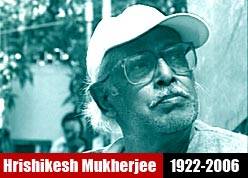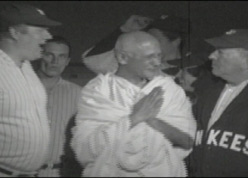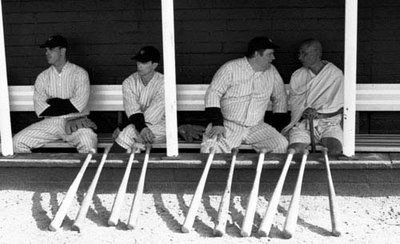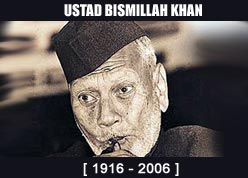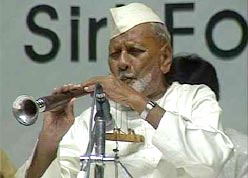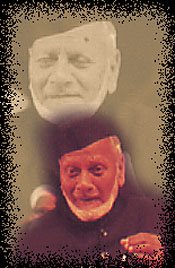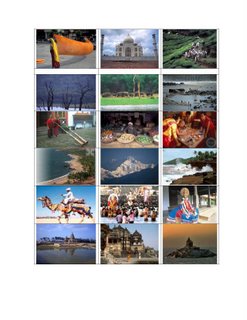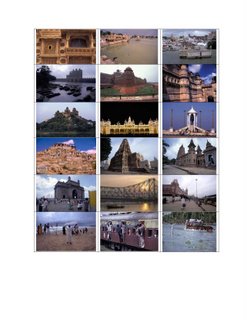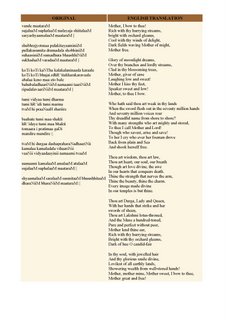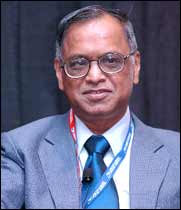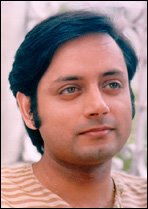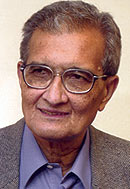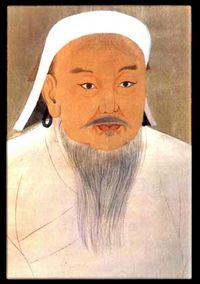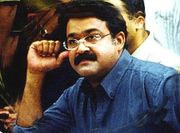 Walt Whitman
Walt Whitman, arguably America's most influential and innovative poet, was of the first generation of Americans who were born in the newly formed United States. He alongwith Poe, Hawthorne, Melville, Thoreau, and Emerson laid the foundations of American literature. His seminal work,
"Leaves of Grass" was a conscious attempt to define the American experience; an attempt by the young Whitman to answer Emerson's essay, "The Poet," which called for a truly original national poet, one who would sing of the new country in a new voice.
Spirituality is a mixed bag for Walt Whitman. Although he takes a great deal of material from Christianity but his conception of religion is much more complicated than the beliefs of one or two faiths mixed together. I find in his 'Song of Myself' the strains of sweet, soulful music that the seers of yore must have heard and later encapsulated in the form of the Upanishads for the posterity to savour. The flashes of metaphysical perspicacity juxtaposed with lyrical sensuality of his mystical verse remind me of Sufi poetry.
Here below are a few gems from Whitman’s
‘Song of Myself’, which I find as an abundant ocean of life’s wisdom. Reading them will give you an insight into the mind of America's venerated poet and humanist of 19th century.
Swiftly arose and spread around me the peace and joy and
----knowledge that pass all the art and argument of the earth;
And I know that the hand of God is the elderhand of my own,
And I know that the spirit of God is the eldest brother of my own,
***
There was never any more inception than there is now,
Nor any more youth or age than there is now,
And will never be any more perfection than there is now,
Nor any more heaven or hell than there is now.
***
Clear and sweet is my soul, and clear and sweet is all that is not my soul.
***
All goes onward and outward, nothing collapses,
And to die is different from what any one supposed, and luckier.
***
Have you heard that it was good to gain the day?
I also say it is good to fall, battles are won in the same spirit in which they are won.
***
In all people I see myself, none more and not one a barleycorn less,
And the good or bad I say of myself I say of them.
***
And whether I come to my own today or in ten thousand or ten million years,
I can cheerfully take it now, or with equal cheerfulness I can wait.
***
The pleasures of heaven are with me and the pains of hell are with me,
The first I graft and increase upon myself, the latter I translate into a new tongue.
***
 Flying kites are a metaphor for soaring ambition, while a "kati patang" connotes aimlessness, dejection, and defeat. [Remember that song by Lata from Rajesh Khanna classic--"na koi umang hai..."] In many cultures around the world kite-flying is a favorite pastime for growing boys; and on special days/festivals the young and the not-so-young get together to indulge in this sport. The sight of colorful kites silhouetted against the sky makes me feel as if I'm in a garden filled with fluttering butterflies.
Flying kites are a metaphor for soaring ambition, while a "kati patang" connotes aimlessness, dejection, and defeat. [Remember that song by Lata from Rajesh Khanna classic--"na koi umang hai..."] In many cultures around the world kite-flying is a favorite pastime for growing boys; and on special days/festivals the young and the not-so-young get together to indulge in this sport. The sight of colorful kites silhouetted against the sky makes me feel as if I'm in a garden filled with fluttering butterflies.  So much so for the poetry. Scientists in Italy are using kites to harness wind-power for generating electricity. Despite its appearance, the Kite Wind Generator, or KiteGen for short, could produce as much energy as a nuclear power plant! Unbelievable, but conceptually true. Read on: Generating Power From Kites
So much so for the poetry. Scientists in Italy are using kites to harness wind-power for generating electricity. Despite its appearance, the Kite Wind Generator, or KiteGen for short, could produce as much energy as a nuclear power plant! Unbelievable, but conceptually true. Read on: Generating Power From Kites



